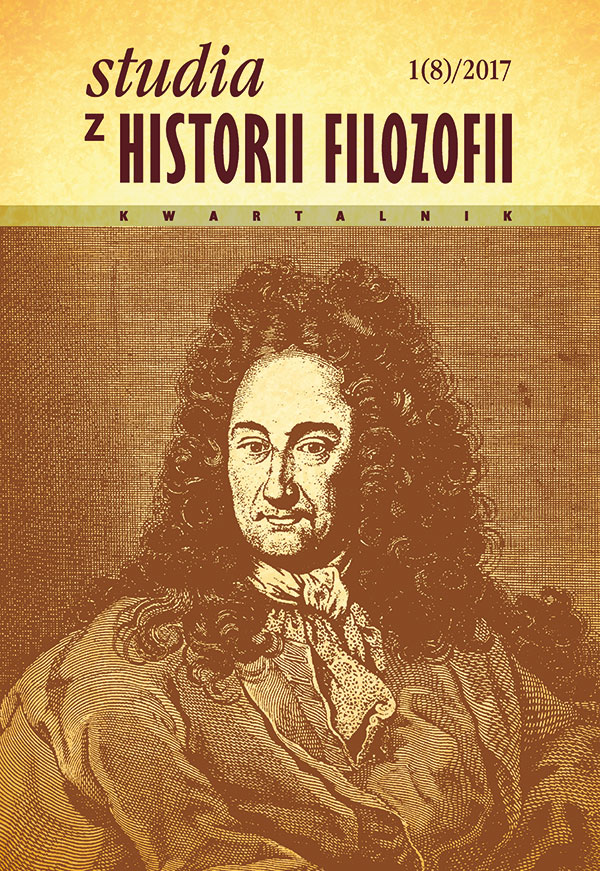Renesans Anioła Dowgirda, „filozofa nieznanego”
DOI:
https://doi.org/10.12775/szhf.2017.005Słowa kluczowe
Anioł Dowgird, Philosophy of Enlightenment, philosophical manuscripts, Stefan Kaczmarek, Romanas Plečkaitis, Jacek Jadacki, edition of collected works, international cooperation, the perspective of new researchesAbstrakt
The article presents a brief history of the researches on the philosophy of (1776–1835) and their revival in XXIst century. The philosopher of the final stage of the Enlightenment mainly has been popularized by Stefan Kaczmarek in his1965 monograph „Anioł Dowgird filozof nieznany” (Anioł Dowgird – an unknown philosopher). It contained a provocative material – an information about the huge corpus of unfound manuscript works of Dowgird. The search for these materials attained an international renown: Byelorussian and Lithuanian Historians banded together into this investigation, a new monograph (in Russian) has been printed in Minsk in 1967. Due to the efforts of Lithuanian and Byelorussian scientists many manuscripts of the philosophcal courses given by Dowgird has been found in the archives of Vilnius and Kiev. Nevertheless the superficial descriptiveness characterized the researches on these materials in all three countries in the XXth century. The philosopher has been allocated to the reception of the Scottish common sense school philosophy, his critical attitude on Kant has been revealed – Dowgird was the most prominent opponent of Kant in Poland and Lithuania in the beginning of the XIXth century. Dowgird was only declared to be a classical representative of Polish and Lithuanian philosophy. The preconditions for the true revival of the investigations into his works were formed by the contemporary editions of his academic works by Romanas Plečkaitis in Vilnius (translation of the selected works into Lithuanian, 2006) and Jace Jadacki in Warsaw (2014, 2016). The edition of three volumes issued by J. Jadacki represents the whole scope of the creative works of Dowgird. It encompasses all of his known printed and manuscript works, other important documents. The researches on Dowgird in the XXIst century became even more actualized and their international character became even wider; the researchers of the three mentioned countries (Pawel Rudkouski, Dalius Viliūnas, Mariusz Grygianiec, Jacek Jadacki, Igar Babkou) refer to each other. The investigations into the herritage of Dowgird now is the major unifying factor of the historians of philosophy of Poland, Lithuania and Belarus. The article presents new steps of the researches on this „unknown philosopher”: an edition prepared by Tomasz Kupś and Dalius Viliūnas, where the tractatus of Dowgird „On Logic, metaphysics and moral philosophy” (1821), written for the tender to the Department of Philosophy of Vilnius University is published together with the texts of seven other candidates for that position. These candidates haven’t been unknown for the historians of philosophy of Lithuania and Poland. The better knowledge into the personality of Dowgird might be obtained through his two until recently unknown letters (published after this article), which were found by Tomasz Kupś in the archives of Kraków.
Pobrania
Opublikowane
Jak cytować
Numer
Dział
Statystyki
Liczba wyświetleń i pobrań: 1320
Liczba cytowań: 0



